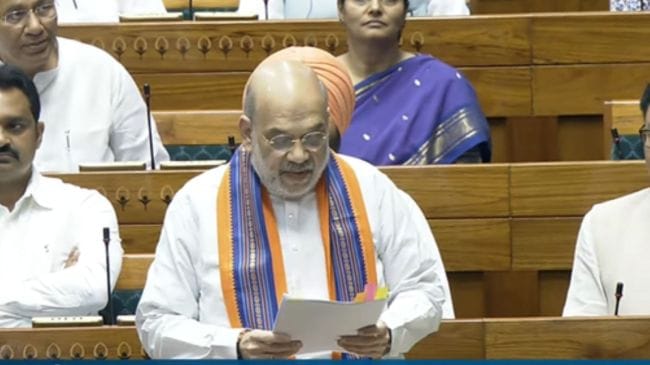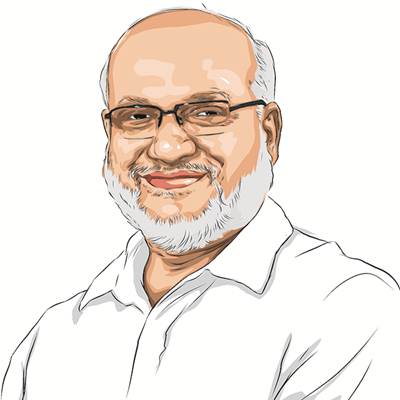Opinion M A Baby writes: Bill to remove arrested ministers is an attack on Opposition, not corruption
In today’s pernicious political climate, where individuals can be easily charged, arrested, and detained for extended periods, this legislation will surely be weaponised to target political opponents and erode democratic norms
 Home Minister Amit Shah tables govt's three key bills in Lok Sabha
Home Minister Amit Shah tables govt's three key bills in Lok Sabha The Constitution (130th Amendment) Bill, 2025, which has been introduced in the name of “public interest, welfare, and good governance”, is, in reality, a draconian piece of legislation designed to destabilise opposition-led state governments and undermine India’s federal structure. In an era marked by vindictive politics, where central agencies are unleashed against Opposition leaders, the provisions have been designed to enable misuse for ulterior motives. The bill’s reference to “constitutional morality” contradicts its spirit, as it deviates from the established principle that disqualification and punishment should be tied to convictions by courts, not merely charges or arrests. This principle is clearly enshrined in Section 8 of the Representation of the People Act (RPA), 1951. In today’s pernicious political climate, where individuals can be easily charged, arrested, and detained for extended periods, this legislation will surely be weaponised to target political opponents and erode democratic norms.
Articles 75, 164 and 239AA of the Indian Constitution detail procedures and prerequisites for ministerial appointment and removal, expressly vesting such power in “the President on the advice of the Prime Minister” and “the Governor on the advice of the Chief Minister”. The proposed amendment breaches this constitutional intent. Articles 14, 19 and 21 enshrine equality before the law, freedom of speech, due process, and personal liberty. Automatic removal on unproven criminal charges contravenes these guarantees. It reverses the burden of proof and the presumption of innocence. There isn’t even a sunset or review clause. Once removed, the minister cannot automatically return even if acquitted or if bail is granted after the 30-day period. There is no provision for compensation if the arrest is found to be malicious, either. In fact, this will only encourage the misuse of preventive detention and laws like the UAPA.
As far as central agencies go, the Enforcement Directorate (ED) is the favourite lapdog of the current ruling dispensation. However, the ED has a dismal track record, with only 38 convictions in the past five years. Its extremely low conviction rate also exposes the fact that most cases never even reach the trial stage. Ninety-five per cent of prominent politicians probed by the ED between 2014 and 2022 were Opposition leaders. Under PMLA, bail remains rare, particularly because of the twin conditions – the public prosecutor having a chance to oppose the bail application and the court being satisfied that the person is not guilty and unlikely to commit any offence while on bail — to be met under Section 45. Such excesses are only going to get accentuated if this bill becomes law!
Four serious objections ought to be raised against this bill. One, it is violative of the presumption of innocence. It punishes ministers on mere arrest, not conviction, subverting the constitutional guarantee of “innocent until proven guilty” and creating an executive tool for vendetta. Two, it breaches the separation of powers. Automatic removal bypasses parliamentary and judicial oversight, concentrating unchecked power in the executive and contravening basic constitutional checks and balances. Three, due process is denied. Removal without trial, charge framing, or judicial finding violates due process, as established in Rameshwar Prasad v Union of India. Four, it creates a platform for political misuse. Under the current well-established pattern of central agencies targeting Opposition leaders, the bill risks constitutionalising vendetta instead of promoting clean governance.
This bill is an unprecedented attack on India’s constitutional architecture. It is a manifestation of the Modi government’s authoritarian drive to suppress the Opposition and our democracy, which displays their neo-fascist characteristics. By enabling automatic removal of a Prime Minister, Chief Minister, or minister on mere arrest and pre-trial custodial detention, it eviscerates the presumption of innocence and due process, both cornerstones of a meaningful system of law and justice. It vests arbitrary power in central agencies, opening the floodgates to constitutionalised vendetta against Opposition leaders. The pattern of weaponising prosecution is already underway, and it cannot be allowed to have constitutional sanctity.
The writer is general secretary of the CPI(M)




